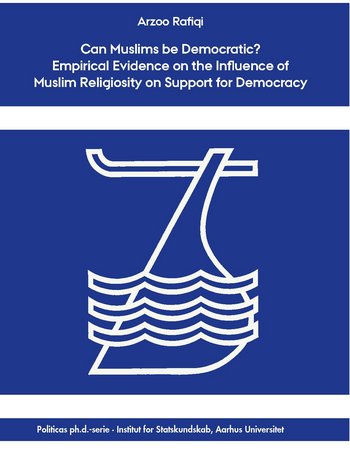Arzoo Rafiqi
Arzoo Rafiqi | Can Muslims be Democratic? Empirical Evidence on the Influence of Muslim Religiosity on Support for Democracy

How does Muslim religiosity, compared to Christian religiosity, affect individuals’ democratic preferences? This dissertation advances our knowledge about the role Muslim and Christian religiosity plays in individuals’ democratic thinking. While the literature mostly focuses on theology and religious doctrines, this dissertation offers an empirical answer to the question. I argue that it is ultimately an empirical question whether Muslim religiosity hinders support for democracy, and that empirical studies might offer a more reliable and conclusive answer than theoretical argumentations. Based on rich experimental and observational survey data from different religious contexts, the findings show that neither Muslim nor Christian religiosity affects support for democratic values. In addition, Muslims in general and religious and practicing Muslims in particular prefer democracy to the same extent as their Christian counterparts. The empirical findings also show that Muslim religiosity does not incline individuals to prefer neither liberal democracy nor authoritarian religious democracy. However, Christian religiosity has a positive effect on preferences for authoritarian religious democracy. Finally, the dissertation shows that Muslims do not have genuine preferences for an authoritarian religious regime over liberal democracy, and they do not appear to be hiding their antidemocratic attitudes because of social desirability bias. Overall, the empirical evidence convincingly rejects the claim that Muslims, unlike Christians, do not support democracy because their religiosity is hostile to democratic values. This dissertation appeals to all who are interested in Muslims’ support for democracy and the relationship between religiosity and democratic attitudes in general.
![]() Ophavsretten tilhører Politica. Materialet må ikke bruges eller distribueres i kommercielt øjemed.
Ophavsretten tilhører Politica. Materialet må ikke bruges eller distribueres i kommercielt øjemed.